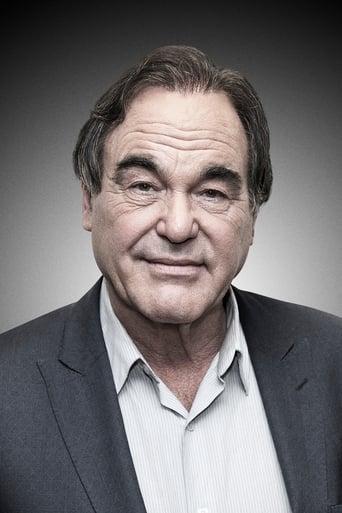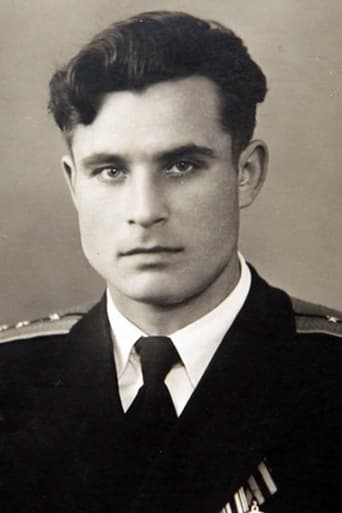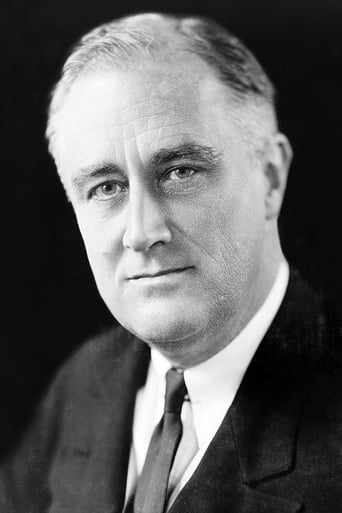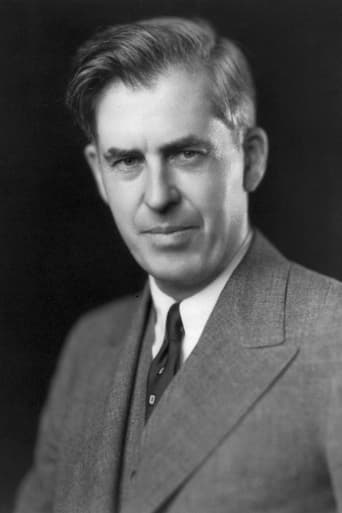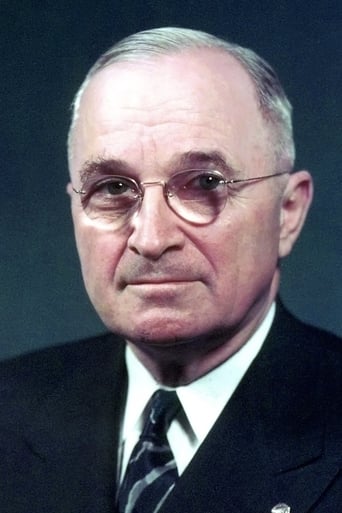TarkovskyFanGirl
First of all, The Untold History of the United States is somewhat of a misnomer as a title because most of this is common knowledge or already taught in standard U.S. history courses--only remotely novel aspect to this is Kuznick and Stone's conjecture, opinion, Wallace/FDR worship, and what ifs about the political climate during WWII and the subsequent Cold War.What if FDR didn't conform to outside pressures and went with Wallace instead of Truman? What if we didn't drop the bombs on Hiroshima and Nagasaki? What if we conciliated our differences with communist ideologues? What if...? And on, and on. Plenty of what is said is true but subterfuge is common, wherein they present a positive spin on many figures and sort of hand wave away their faults or never admit it at all. Quite a number of communist ideologues who slaughtered and oppressed their people are often seen in a rather benign light, and, in contrast, it's not uncommon to feel as if U.S. figures are unfairly demonized in comparison. Oh, hey Joseph McCarthy, let me call you a venomous snake and play ominous music whenever you appear, and I'll play weepy violin music for when Stalin dies--and let us make sure to portray Stalin with the old "papa joe" image! Both of these were juxtaposed together in practically the same breath.There is still a lot of speculation by historians concerning the dropping of the atomic bombs on Japan. Both bombs were dropped 3 days apart and Stalin invaded Manchuria around the same time. It's hard to say what made Japan surrender because everything was so close together. Maybe they would have surrendered without Russia's involvement or without the bombs. Maybe one or the other would have been needed (definitely should have waited longer to drop the second bomb, if it was necessary at all, in HINDSIGHT). There are a lot of maybes and it's much easier to speculate in hindsight and play armchair philosopher. Here is another what if: what if we didn't drop the bombs and the war lingered on and Russia invaded mainland Japan and the country was partitioned similar to what happened in Berlin? Bad things can happen from what ifs, not just Stone's Kumbaya vision quests.While I agree that we often picked a regime that wasn't really any better than what they were competing against or the preexisting status quo, and the U.S. world policing has often done more harm than good, I found it rather funny that Stone paints Allende in such a positive light, who was a Marxist and had absolutely horrendous policies with starving citizens on par with 2018-level Venezuela, and the country was about to collapse. A coup was inevitable. Yes, Pinochet did bad things but Chile prospered in comparison to what preceded him, and he didn't kill nearly as many people compared to Castro's regime, who Stone never says a bad word about (because we sided with Batista and a lot of leftist figures seem quite fond of Castro for some reason). If we would have sided with Allende (WHAT IF???), then we'd probably be blamed for that too.As for the cold war, Stone tends to present the U.S. as being mostly to blame, even though it was both sides contributing to the problem rather than the Soviets responding to U.S. aggression. Also, while I generally agree with Truman's sentiment about the red scare and blacklisting, as highlighted in one of his quotes about how the U.S. should not be an entity on a witch hunt for dissenters, I wouldn't say that the condemnation of the communists in the U.S. was without reason. It's a destructive ideology and that was during the Cold War, against the Soviets, who were spreading the ideology and were the enemy of the United States. If you're actively fighting against communist ideologues, then it seems strange to allow them to proliferate and maintain roles in hollywood, politics, the education system, etc, where they have a pulpit to spread an ideology that is deemed antithetical to the United States' ideology--and perhaps allowing them to take over from within (granted, it was also often used to slander political enemies with no ties to communist ideology). Even now you see a very biased perspective in the media and school system. These systems are far more liberal than they are conservative; could not the same happen with any ideologues that infiltrate and maintain power? One might argue that we never weeded out the communist ideologues and their ideas have been presented in the media and academia in a manner more palatable and accepted by the masses. "Like Nixon, Bush appealed to voters' racism and fears of crime." This is actually a verbatim quote. And he goes on to blame the "far right" for everything without ever slowing down to analyze the flaws of the "far left."Admittedly, it is pretty well-made and has a lot of good footage compiled together, if you can tolerate Stone's spin on history. It's often propagandistic (complete with very schmaltzy music) in a very effective manner, such as Reagan's quoted reevaluation of the Vietnam War, where he laments the scenario but goes on to say that regardless of not winning the war and the many failings of the U.S., that it was for a noble cause--then immediately the scene cuts to a man blocking the camera and moving out of frame to reveal a dead child on the blood-spattered ground. It's excellent propaganda at times, not unlike Davis's Hearts and Minds.
keninoldtown
The Trump of the left rewrites history into an extreme exaggeration of what used to be modest lies to whip up emotions for a brainwashed following. His portrayal of the US as the bad guy in WW2 is beyond absurd. His portrayal of Stalin as a guy who was just looking out for his country's best interest is horrifying and absurd. Luckily I watched this when my Ukrainian wife was not present. This guy was a joke when he supported Chavez and company and he is still a liar. Difference is now that the country is becoming polarized, people like Oliver Stone, Donald Trump, Sean Spicer, etc are getting larger audiences of people looking to reinforce an extreme world view.
Russ Hog
This is Oliver Stone's documentary about the United States from WW2 up until the Obama administration. It links the wars the United States has been involved in over seven decades and discusses with some depth the political tension behind the scenes between the Presidents and their cabinet, their spy agencies, their enemies, their allies, and the American people. There is also some mission critical storytelling about a few long forgotten historical figures that shed insight into our current geo-political landscape in the post 2016 Presidential election.One very interesting story is that in 1944 there was a progressive left wing VP candidate named George Wallace who had previously been the secretary of agriculture and vice president during the third term of President Roosevelt - but he was passed over in a controversial decision by right wing members of the financial sector and replaced by Harry Truman who served as VP during Roosevelt's fourth and final term. This becomes the first in a long series of progressive left wing politicians who are cast out - assassinated - or defeated and opportunities for our government to put people before empire become potentially lost.Roosevelt dies in office just prior to the end of WW2 and so an inexperienced and more simple minded President Truman was suddenly thrust into the Presidency. Truman knew nothing about the complex deals between President Roosevelt and Soviet Dictator Joseph Stalin - and this missed connection becomes a tragic spark that led to many of the anti-communist wars of the last century. What would follow is the construction of the Central Intelligence Agency and massive spending on military that would soon swell into what we call the Military Industrial Complex. The lives of millions would hang in the balance during a slew of close calls that nearly become a nuclear holocaust. One key thing this documentary does a very good job at is showing is that the Soviet Union did not seek global domination - rather they sought to secure their borders. The communists dictators tend to want their land - not global domination. It has been the United States in the post WW2 world has been responsible for the worst air strikes against civilian populations - used puppet governments in Latin America and parts of Africa - and the Middle East - to harness fuel and other supplies. We have done some terrible stuff in the name of empire - yet many of our choices are also rife with complexities that cannot be shunned simply as "America is evil."Perhaps the most interesting scenario of the documentary - is the epilogues that shows the financial history behind World War 1 and World War 2. In WW1 -JP Morgan's bank began to loan money to Britain because Britain was broke after so many years as a global empire and and there is a theory that to get their money back JP Morgan got President Wilson to send troops into the war. While that may have been one of many reasons behind the United States getting involved - including favorable market share with the favorable winners - there are some fascinating links between the banks - fascism - loans - and the war profiting of the financial sector. All of the people in this documentary are human beings - not omnipotent overlords of shadow conspiracies. They have great strengths and weaknesses. They posses terrifying power and humble traits. To understand the world we are in today - one needs to know as much history as possible - because this current geo-political climate was not created in the last decade - but over the course of the last century and this is a documentary that informs as much as it entertains and holds the audience on the edge of their seat.
anarky321
this is a review of episode 1 because im not sure i can keep watching this the whole episode on ww2 made me cringe...this isn't some revealing piece about how the war could have been easily avoided or how Churchill was a warmonger, or how FDR forced the USA into the war by provoking both Germany and Japan, or how he disregarded all the basic rules of neutrality, or maybe how Britain had several opportunities to simply stay neutral, or how Stalin was planning on invading Germany in 1943, or how FDR knew and wanted Pearl Harbor...or maybe how the assault on Iwo Jima that cost tens of thousands of lives was utterly pointless....none of this is in here....in fact this is just the 'official' kid-friendly version of ww2....what is untold about it? in addition ironically extremely biased against the axis powers and portrays them as one-sided cardboard bad guys...the research that went into this is abysmally inadequate if you want to watch a far better ww2 documentary watch 'World At War'
